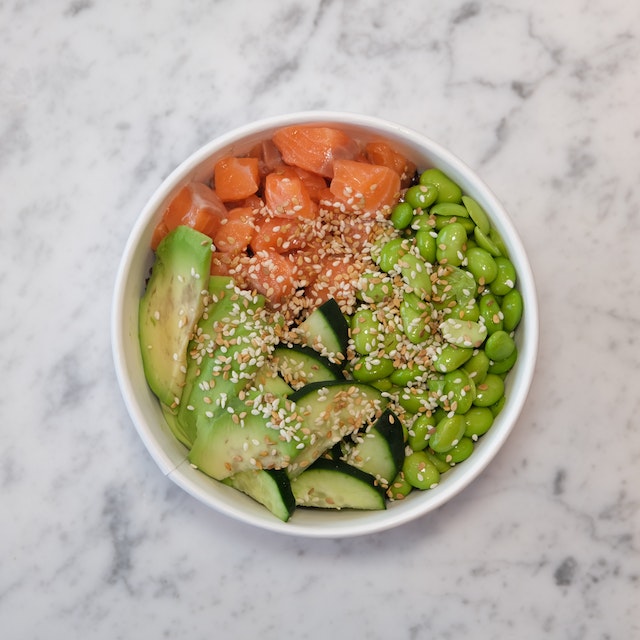
In today’s health-conscious world, protein has been given a lot of attention. It is an essential nutrient that the body needs to build and repair tissues, produce enzymes and hormones, and support the immune system. In fact, protein is so important that it has been dubbed the “building block of life.” But what exactly is protein, and why is it so important?
Proteins play a vital role in numerous bodily functions, making them an essential nutrient for overall health and well-being. Let’s dive deeper into the various roles that protein plays in the body, focusing on how it supports your everyday functions and goals.
Muscle Development and Repair
Protein’s most well-known role is its contribution to muscle development and repair. When you engage in physical activity or weightlifting, your muscles undergo stress and small tears occur. Protein steps in and helps repair these tears, facilitating muscle growth and strength. By including protein-rich foods in your diet, you provide your body with the necessary amino acids it needs to support muscle development and recovery.
Enzyme Production
Enzymes are responsible for catalyzing chemical reactions in the body, making them vital for various physiological processes. Proteins act as precursors to enzymes, meaning they provide the necessary components for enzyme production. Without adequate protein intake, your body may struggle to produce enough enzymes, which can affect digestion, metabolism, and other essential functions.
Hormone Regulation
Proteins also play a crucial role in hormone regulation. Hormones act as messengers in the body, controlling numerous processes such as growth, metabolism, and reproductive functions. Protein is required for the synthesis and transportation of hormones throughout the body, ensuring proper communication between cells and organs.
Immune System Support:
Protein is essential for a robust immune system. Antibodies, which help fight off pathogens and protect against infections, are made up of protein. Additionally, certain immune cells, such as white blood cells, rely on proteins to carry out their defense functions effectively. Including enough protein in your diet helps support a healthy immune system, reducing the risk of falling ill.
Tissue Repair and Maintenance
Not only does protein aid in muscle repair, but it also plays a vital role in repairing and maintaining other tissues throughout the body. Skin, hair, nails, and connective tissues all require adequate protein for their growth, maintenance, and repair. Without enough protein, these tissues may become weak, brittle, or slow to heal.

By focusing on protein-rich foods in your diet, you ensure that your body receives the essential nutrients it needs for optimal functioning. However, it’s important to note that protein alone cannot guarantee good health. A well-rounded diet that includes a variety of other nutrients, such as carbohydrates, fats, vitamins, and minerals, is crucial for overall well-being.
Remember, you do not need to rely solely on protein supplements to meet your protein needs. Whole food sources such as lean meats, fish, poultry, beans, nuts, and dairy products are excellent choices to obtain high-quality protein. By incorporating these foods into your meals and snacks, you can support your body’s protein requirements naturally.
Dietary Protein Requirements: Focus on Protein Intake for Optimal Health
To maintain optimal health, it is crucial to focus on protein intake and ensure you are getting an adequate amount. Protein requirements can vary based on individual factors such as age, sex, weight, and activity level. Understanding your dietary protein requirements can help you make informed choices when it comes to your diet. Let’s explore the recommended protein intake based on different factors:
General Protein Recommendations: The recommended daily allowance (RDA) for protein intake is 0.8 grams per kilogram of body weight. This means that for an average adult weighing 70 kilograms, the recommended protein intake is around 56 grams per day. However, it is important to note that this is a general guideline and may not be sufficient for everyone.
Special Dietary Needs: Some individuals may have special dietary needs that require higher protein intake. Athletes, bodybuilders, and individuals engaging in intense physical activity may need more protein to support muscle growth, repair, and recovery. In these cases, protein requirements may range from 1.2 to 2.2 grams per kilogram of body weight.
Weight Management: Protein plays a crucial role in weight management. It can help control appetite, increase satiety, and support fat loss while preserving lean muscle. If you are trying to lose weight, increasing your protein intake can be beneficial. Aim for a protein intake of around 1.2 to 1.6 grams per kilogram of body weight to support your weight loss goals.
Aging and Muscle Mass: As we age, muscle mass tends to decrease, leading to a condition called sarcopenia. Consuming adequate protein becomes even more important to preserve muscle mass and strength. Older adults may benefit from higher protein intake, ranging from 1.2 to 2.0 grams per kilogram of body weight.
Health Conditions and Recovery: Certain health conditions, such as injuries, surgeries, or chronic illnesses, may increase protein needs for tissue repair and recovery. Consult with your healthcare provider to determine the appropriate protein intake for your specific condition.
When focusing on protein intake, it’s essential to choose high-quality protein sources. Include a variety of lean meats, poultry, fish, eggs, dairy products, beans, legumes, and nuts in your diet. These foods provide all the essential amino acids and are rich in other important nutrients.
It’s also important to distribute your protein intake evenly throughout the day. Aim for three to four protein-rich meals or snacks per day to ensure a balanced and steady supply of amino acids for your body.
Remember, while protein is important, it should not be the sole focus of your diet. It’s crucial to have a well-rounded approach and include other macronutrients such as carbohydrates and fats, as well as essential vitamins and minerals from fruits, vegetables, and whole grains.
High-Quality Protein Sources: Fuel Your Body with the Best
When it comes to protein, quality matters. While protein can be found in a variety of foods, not all sources are created equal. High-quality protein sources provide the body with all nine essential amino acids in the right proportion, making them the gold standard for supporting optimal health and fitness goals. Here are some top-notch options to focus on when it comes to boosting your protein intake:
- Lean Meats: Lean meats, such as chicken, turkey, and lean cuts of beef, are excellent sources of high-quality protein. They not only provide a substantial amount of protein but also deliver important nutrients like vitamins B12 and iron. So fire up the grill and add some lean meats to your plate for a protein-packed feast.

- Fish and Seafood: Seafood lovers rejoice! Fish and seafood, including salmon, tuna, shrimp, and scallops, are rich sources of protein. They also offer heart-healthy omega-3 fatty acids, which have been shown to support brain function and reduce inflammation. So dive into the ocean of protein-rich possibilities and enjoy the flavors of the sea.
- Eggs: Nature’s perfect protein package, eggs are one of the most versatile and nutrient-dense foods out there. They not only contain high-quality protein but are also packed with essential vitamins and minerals. From omelettes to frittatas, scrambled to sunny side up, eggs can be enjoyed in countless delicious ways.
- Dairy Products: Milk, cheese, yogurt, and other dairy products are not only a great source of calcium but also provide a good dose of protein. Opt for low-fat or fat-free options to keep your saturated fat intake in check. Whip up a smoothie, top your cereal, or enjoy a bowl of Greek yogurt to boost your protein intake and support your bones.
- Nuts and Seeds: Don’t let their small size fool you. Nuts and seeds, such as almonds, walnuts, chia seeds, and flaxseeds, are packed with protein, healthy fats, and various vitamins and minerals. They make for a satisfying snack on their own or can be sprinkled onto salads, oatmeal, or yogurt for an extra protein boost.
- Plant-Based Protein Powders: If you’re looking for a convenient and quick protein fix, plant-based protein powders can be a great option. These powders, made from sources like peas, rice, and hemp, provide a concentrated dose of protein. Mix them into smoothies or use them in baking recipes to add an extra punch of plant-powered protein to your diet.

Beans and Legumes: For those following a vegetarian or vegan lifestyle, beans and legumes are excellent protein powerhouses. These plant-based sources, including lentils, chickpeas, black beans, and kidney beans, offer a high amount of protein, fiber, and other important nutrients. Incorporate them into your soups, salads, and stews for a hearty and nutritious meal.
Remember, incorporating a variety of high-quality protein sources into your diet ensures that you receive a complete array of essential amino acids. While these sources are key for supporting muscle development, hormone regulation, and overall health, it’s important to remember that balance is key.
Focus on protein while incorporating other macronutrients and a variety of fruits, vegetables, and whole grains to achieve a balanced diet that is crucial for overall health and well-being. Your body will thank you as you nourish it with the building blocks it needs for a healthy and vibrant life.
